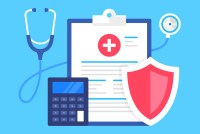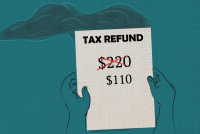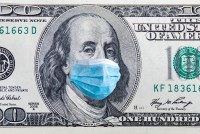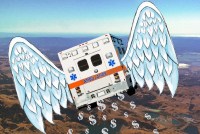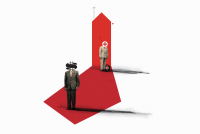“Lost on the Frontline” is an ongoing project by Kaiser Health News and The Guardian that aims to document the lives of health care workers in the U.S. who died from COVID 19, and to investigate why so many are victims of the disease.
Last Thing Patients Need During Pandemic: Being Last to Know a Doctor Left Network
Health plan network changes occur all the time as doctors retire, relocate or leave networks. Unfortunately, patients may be the last to find out about such changes because there are often few requirements that either providers or insurers inform them.
Administration Eases Rules to Give Laid-Off Workers More Time to Sign Up for COBRA
Under the federal COBRA law, people who lose health coverage because of a layoff or a reduction in their hours generally have 60 days to decide whether to pay to maintain that coverage. But under new regulations, the clock won’t start ticking until the government says the coronavirus national emergency is over, and then consumers will have 120 days to act.
2021 Health Plans Granted Leeway To Limit Consumers’ Benefit From Drug Coupons
A rule finalized this spring by the Trump administration permits employers and insurers not to apply drug company copayment assistance toward enrollees’ deductibles and out-of-pocket maximums for any drug.
Ghost Bill: UVA Siphons Couple’s Tax Refund To Pay 20-Year-Old Medical Debt
Jane Collins and Anthony Blow were stunned to learn last fall that their state tax refund was being reduced by $110 because the Charlottesville medical center said they owed money for care their son received in 2001 and 2002.
Social Media Fears About Lack Of Coverage For Protest Injuries Are Overblown
After some protests over the death of George Floyd resulted in violence, online discussions raised concerns that health plans might deny medical coverage. Although plans do sometimes make exclusions for “illegal acts” or riots, experts say concerns by people who are protesting Floyd’s death may be overstated.
Coronavirus Surprise: IRS Allows Midyear Insurance And FSA Changes
Last month, the Internal Revenue Service announced it would let employees add, drop or change some of their benefits for the remainder of 2020. The catch: Your employer has to allow the changes. KHN explains how it could work.
Médicos forenses buscan rastros de COVID-19 en muertes inexplicables
Durante la pandemia, muchas personas enfermas se quedaron en casa y murieron en sus hogares en lugar de ir a hospitales abrumados por pacientes con coronavirus.
‘Last Responders’ Seek To Expand Postmortem COVID Testing In Unexplained Deaths
Early in the outbreak, some coroners and medical examiners didn’t have enough tests to use for people who died unexpectedly at home to see whether the coronavirus was a factor. Now, as testing gradually becomes widely available, more such mysteries could be solved.
With Federal Nod, Consumers Could Lose The Boost They Get From Drug ‘Coupons’
The proposal being weighed by federal officials would allow employers and insurers to decide that drug companies’ assistance doesn’t count toward their members’ deductible or out-of-pocket maximum spending limits. If plans opted for that approach, only payments made by patients themselves would be included in the calculation toward reaching those limits.
N.Y. Leads The Nation In COVID-19 Tests, But Testing Still Doesn’t Meet Demand
New York City and hospital officials recommend testing only the sickest people and encouraging others to stay home to get well. But other officials say wider tests are needed to ensure that essential workers don’t spread the disease.
Para luchar contra el coronavirus, médicos y enfermeras retirados vuelven a trabajar
En Nueva York, California, Illinois y Colorado, los gobernadores han hecho un llamado a los profesionales de salud jubilados para que den un paso adelante. Miles han respondido.
Help Wanted: Retired Doctors And Nurses Don Scrubs Again In Coronavirus Fight
As they prepare for an onslaught of coronavirus patients, health officials in New York and other states urge retired medical professionals to rejoin the ranks.
Gig Economy Workers Hurt By Coronavirus Eye New Federal Funds For Relief
A law signed by Trump on Wednesday will provide financial help for self-employed workers, who generally don’t have paid leave. Some states also have family and medical leave programs that can be helpful.
Tengo que estar en casa por el coronavirus, ¿me pagarán mi salario?
A medida que el coronavirus se propaga por todo el país, surge una pregunta crítica: ¿Qué pasa con sus salarios si el trabajador está enfermo o tiene que estar en cuarentena?
Coronavirus Is Keeping Me Home From Work. Will I Get Paid?
If you are sick from the coronavirus outbreak or sent home, your financial protections may vary depending on what state you live in.
Loopholes Limit New California Law To Guard Against Lofty Air Ambulance Bills
A new state law limits what consumers owe if they’re transported by an air ambulance that’s not part of their insurance network to the amount that they’d be charged if they used an in-network provider. But the law won’t protect millions of consumers whose health plans aren’t regulated by the state.
Nueva York es el estado con el número más bajo de suicidios. ¿Por qué?
En 2017, 1.4 millones de adultos intentaron suicidarse, y más de 47,000 lograron acabar con su vida, convirtiendo al suicidio en la décima causa de muerte en el país, según los CDC.
Among U.S. States, New York’s Suicide Rate Is The Lowest. How’s That?
Suicide rates across the country have been rising for 20 years. That’s true in New York, too, but even so, its rate is about half that of the country as a whole.
California Surprise-Billing Law Protects Patients But Aggravates Many Doctors
A California law, which took effect in July 2017, protects consumers who use an in-network hospital or other facility from surprise bills when cared for by an out-of-network doctor. But physicians say the law has allowed insurers to shrink networks, limiting access to those doctors who have contracted with the patients’ insurance plans.





